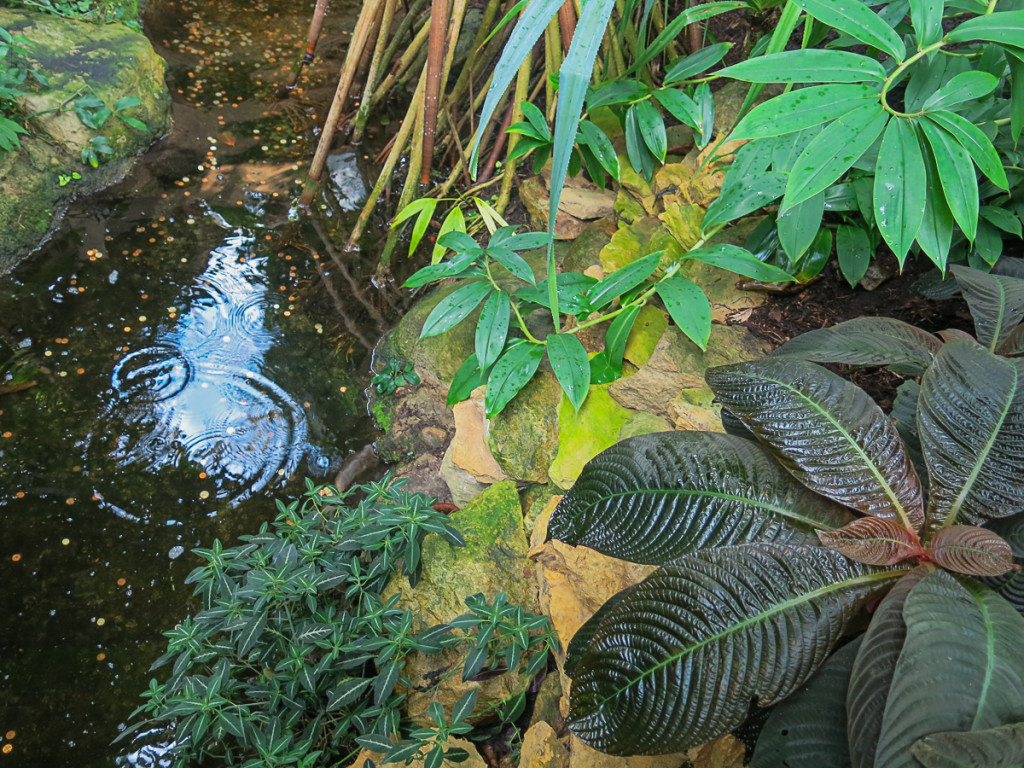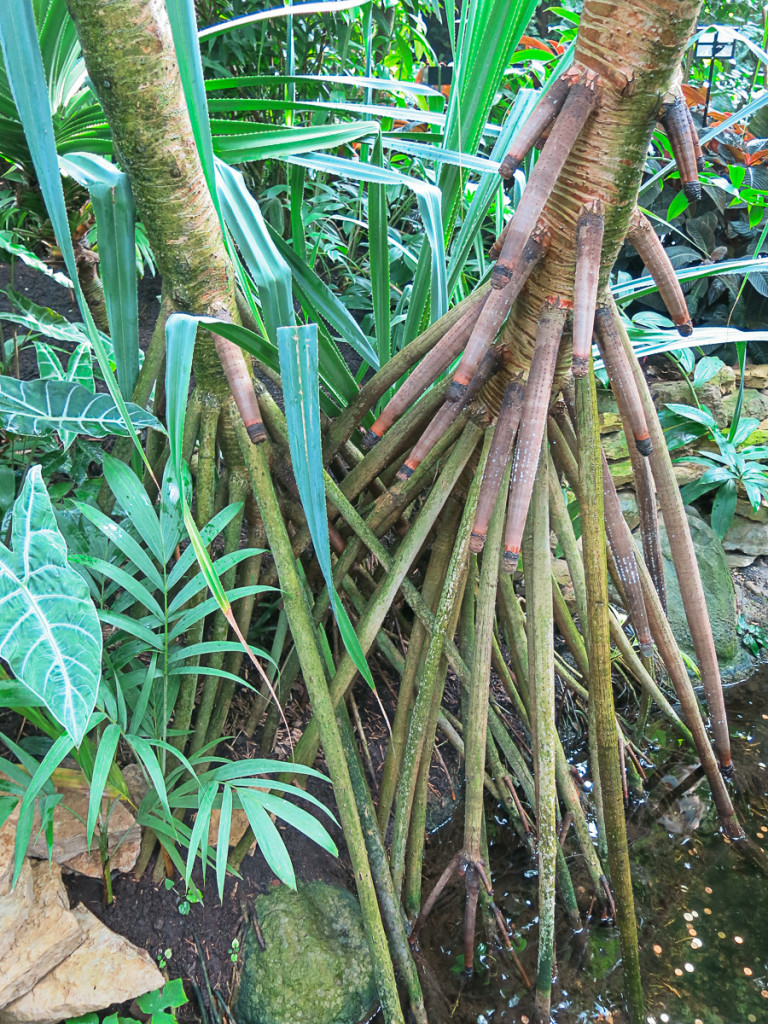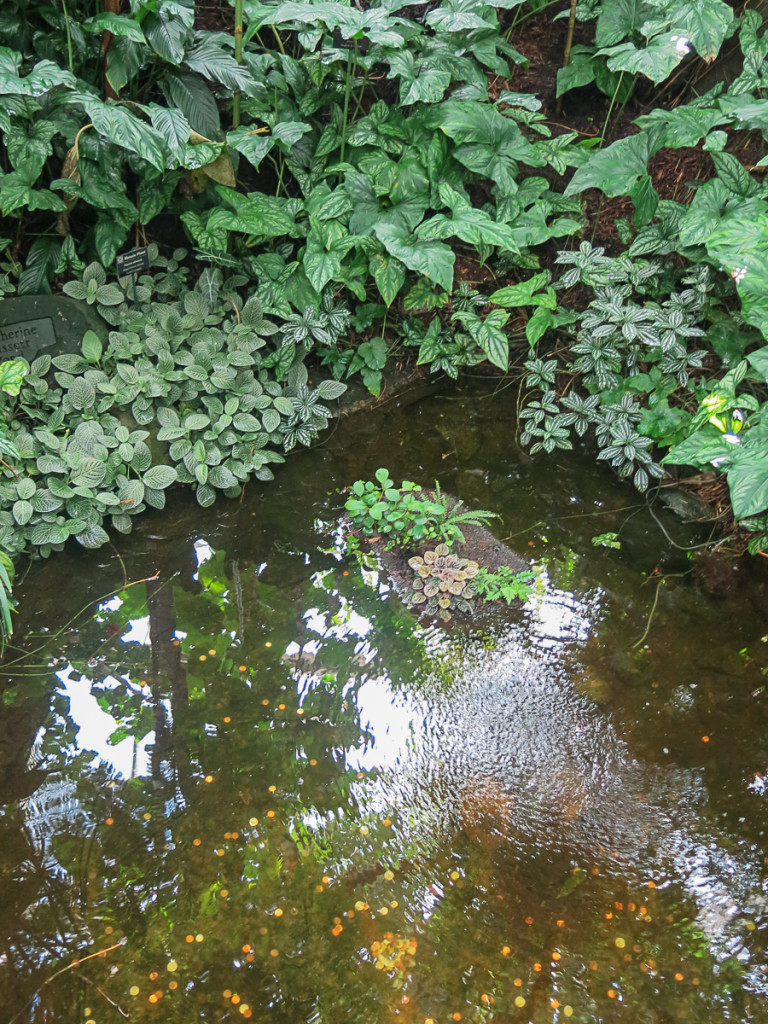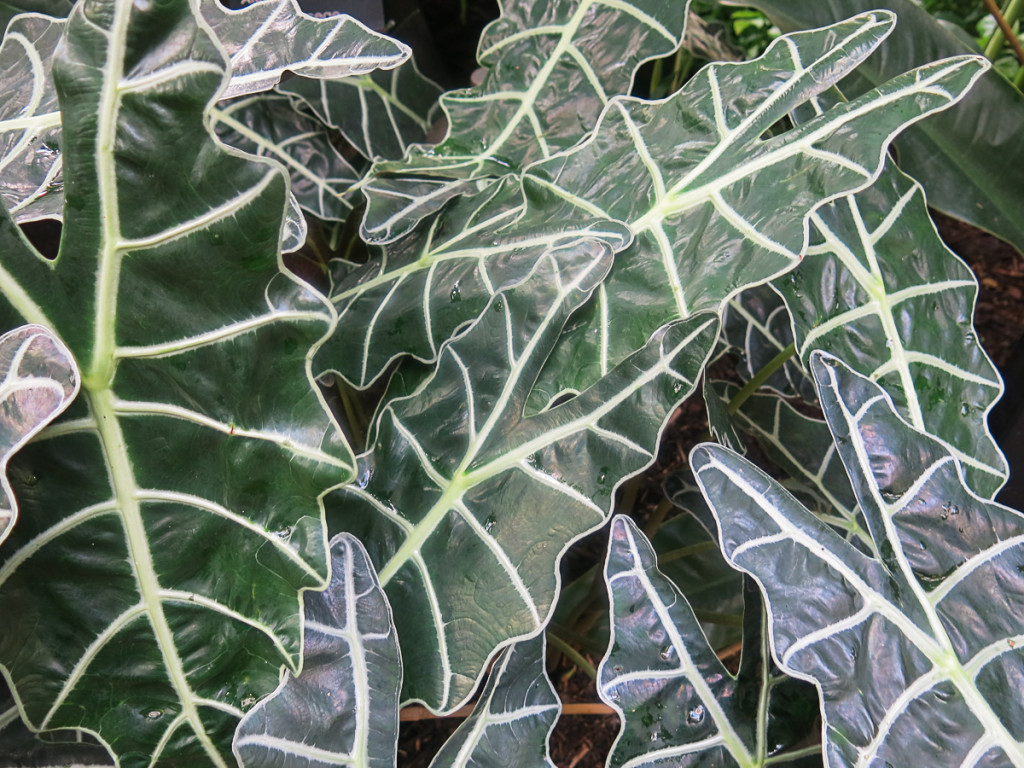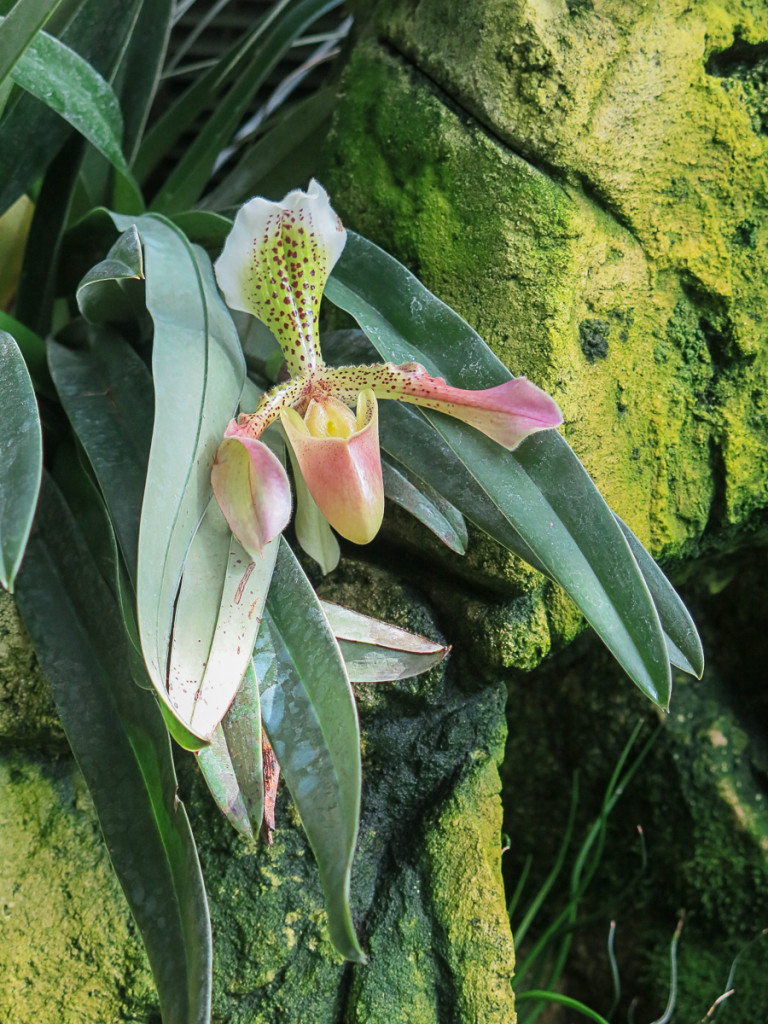There is a place on the other side of town that always offers a magical experience when I cross its threshold.
No matter the weather outside, when I step through the heavy double doors into the Bolz Conservatory at Madison’s Olbrich Botanical Gardens, I enter a tropical paradise — exotic plants, orchids, koi ponds, meandering paths through thick greenery, rushing waterfalls, birds in flight.
A recipe for rejuvenation.
I find a bench. Take in my surroundings. Take in lots and lots of deep breaths. And relax.
The Conservatory has over 650 plants from the tropics and sub-tropics found throughout the world.
Once I am inside the 50 foot high glass pyramid, I get a reprieve from December’s cold and snow. Inside it is a balmy 80˚F today and the humidity is high, high enough to repeatedly fog my camera glass.
No worries.
I take a few photos, but mostly I sit and take in the warmth.
I spend most of my time simply absorbing the experience.
Truly, what pleasure there’s to be found in watching drops of moisture fall from wide green umbrella plants, in studying the camouflaged quail as they scuttle from one plant to the next, in noticing how brilliantly the orange koi glide through the rushing waters.
I re-discover the calming effects of studying just a few leaves, letting my eyes trace the pronounced veins on this deep green plant, noticing the puckered textures, droplets of water beading on the waxy surfaces.
What a great threshold to cross, what a great space to pause and rest.
It is mid-day and mid-week, and I am alone in the tropics for much of my visit. The gardens are typically a busy place teeming with visitors of all ages, all looking for a warm place, a break from wintry weather.
I consider myself especially fortunate as I sit amidst the plants and absorb the energy from the tropical space in solitude.
Threshold Two of my Thirty-One Thresholds Project is hugely rewarding.
